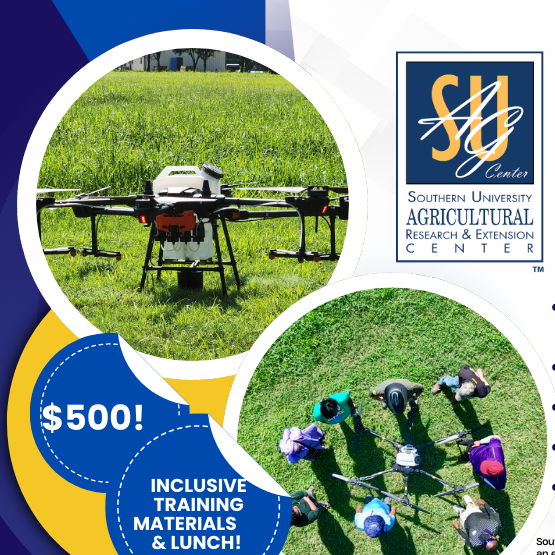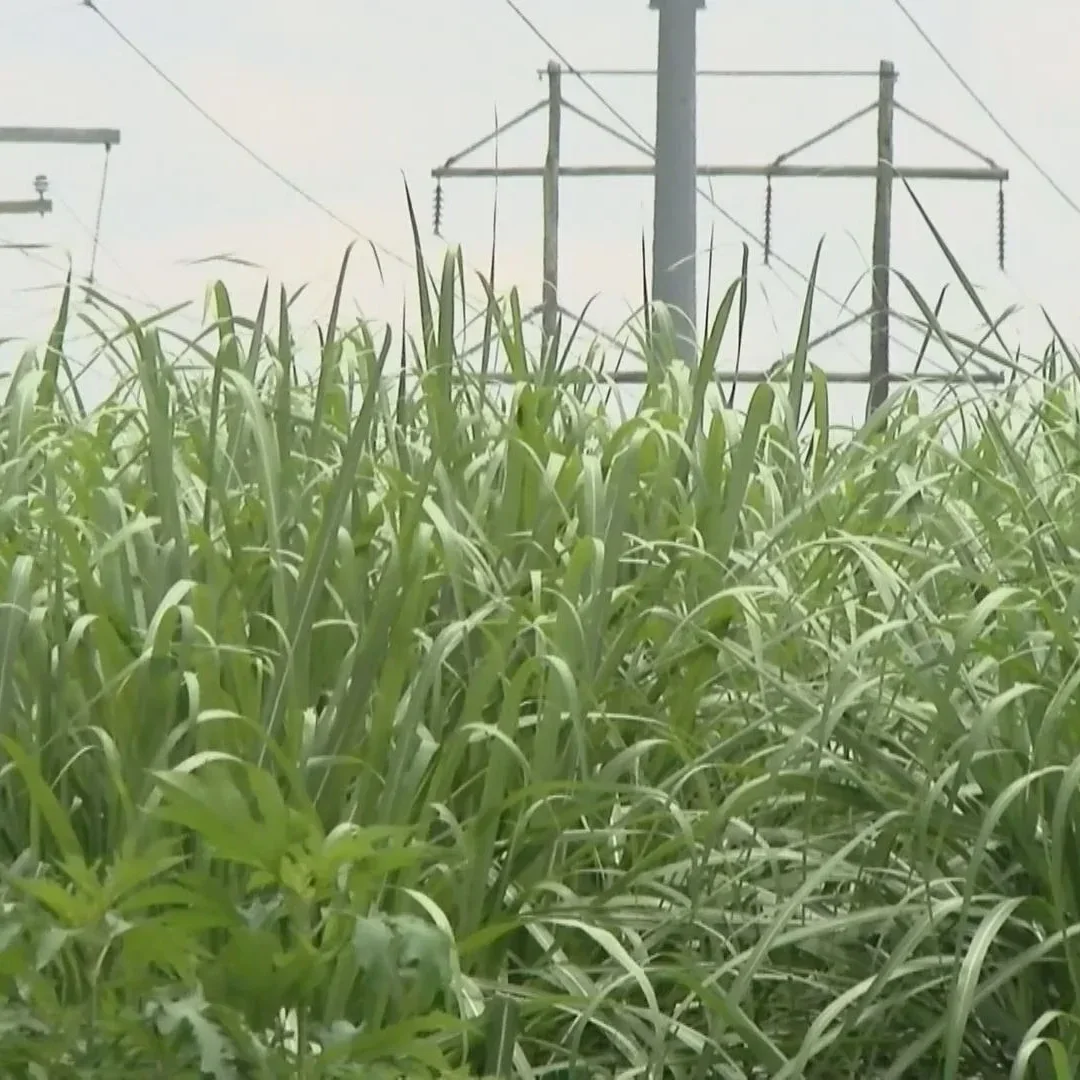USDA to Host Data Users’ Meeting to Gather Public Input on Statistical Programs
The U.S. Department of Agriculture’s (USDA) National Agricultural Statistics Service (NASS) will hold its biannual Data Users’ Meeting in West Des Moines, Iowa, on October 21, starting at 1 p.m. CT. The free and open-to-the-public event will also have a virtual attendance option. For both methods, registration is required.
The Data Users’ Meeting is held to share recent and pending statistical program changes with the public and to solicit input on these and other programs important to agriculture.
Read More
Fall Field Prep Boosts Early Rice Planting Success
Timing is the most important element in a maximally efficient rice crop. Planting early is the key element to producing top yield, and it all begins with fall field prep.
Ron Levy, Louisiana State University Extension rice specialist, is a firm believer in preparing a fall foundation for infallible spring rice planting.
Read More
SU Ag Center To Host Ag Drone Certification Test Prep Training
The Southern University Ag Center will host a drone certification test preparation training at the M.A. Edmound Multi-Purpose Building, 14600 Scenic Hwy., in Baton Rouge from Oct. 13-16, 2025.
The four-day training is designed for farmers, researchers, students, educators, entrepreneurs, and professionals interested in using drones for agriculture, research, business applications, or anyone seeking to become an FAA-certified drone pilot.
Read More
North Louisiana Farmer On The Status Of The Rice Industry
Rice Farmer John Owen says inflation and recent tariffs are undermining the 2018 farm bill and increasing the need for a new one.
“We’ve had about three years of prices that were below the cost of production,” Owen said. “We’ve gone, we’re almost three years without a meaningful farm bill. ”
Read More
2025 Mid South Cotton Defoliation Guide
Chemical harvest aids are applied to almost every cotton acre in the Midsouth. These products allow the perennial crop to be manipulated into a timely, single-pass harvest. Leaf material remaining on the plant at harvest is the primary source of staining and trash. When properly applied, the removal of leaves and opening of bolls generated by harvest aids results in a substantial increase in yield, improvement of fiber quality, reduction of boll rot, and increase in picker efficiency. Harvest aids used in cotton production are broadly organized as either defoliants, boll openers, or desiccants.
Read More
Evolution of Sugar Cane Farming
Sugarcane farming in New Iberia is embracing new technology, including drones, to improve efficiency and profitability, according to veteran farmer Ricky Gonsoulin.
Ricky Gonsoulin, who has been farming sugarcane for 39 years, highlighted the industry’s evolution through the adoption of new technologies each harvest. This year, a large drone was used to drop holy water on the sugarcane crops as part of a blessing ceremony.
Read More
Breeding Better Beef: LSU’s Research Works to Transform Louisiana’s Cattle Industry
In Louisiana, where heat and humidity dominate much of the year, raising high-quality beef that tolerates the weather is challenging. Traditional cattle breeds that thrive in cooler climates often don’t adapt well to the Gulf South. Brahman cattle, a breed known for its resilience but not necessarily for premium beef, are typically found throughout the state.
Read More
Exploring Hidden Food Markets In Louisiana That Tourists Miss
Louisiana’s food markets offer a special peek into the state’s vibrant culinary culture. From historic city markets to countryside specialty shops, these spots showcase the best Cajun, Creole, and Southern flavors.
Whether you’re hunting for fresh seafood, homemade sausages, or local produce, these ten markets deliver authentic Louisiana tastes that keep locals and visitors coming back for more.
Read More
USDA Announces Fiscal Year 2026 Sugar Loan Rates and No Actions Under Feedstock Flexibility Program
The U.S. Department of Agriculture’s (USDA) Commodity Credit Corporation (CCC) today announced sugar loan rates for crop year 2025 (fiscal year 2026). The rates, which were raised in the One Big Beautiful Bill Act signed by President Donald J. Trump on July 4, 2025, reflect the first meaningful increase to sugar loan rates in 40 years. CCC also announced no actions taken under the Feedstock Flexibility Program.
Read More
Rice Celebrates Rich Tradition In Louisiana During National Rice Month
September National Rice Month (NRM) is always a whirlwind of activity in Louisiana! There are so many celebrations, cooking contests, and charitable donations during NRM that they don't all fit. Stay tuned for the 88th International Rice Festival in Crowley, Louisiana, October 16-19.
Read More
USDA Issues Second Economic Assistance Payment To Agricultural Producers
The U.S. Department of Agriculture (USDA) is issuing a second Emergency Commodity Assistance Program (ECAP) payment to eligible producers for the 2024 crop year. Of the authorized $10 billion in ECAP assistance, USDA’s Farm Service Agency (FSA) has already provided over $8 billion in payments to eligible producers to mitigate the impacts of increased input costs and falling commodity prices. U.S. Secretary of Agriculture Brooke Rollins made the announcement yesterday at the Ag Outlook Forum in Kansas City.
Read More
Drought Conditions On The Mississippi River Threatens Farm Delivery
Once again, we are hearing rumblings about transportation along the Lower Mississippi River. Anyone south of the confluence of the Ohio and Mississippi rivers will tell you we haven’t had much rainfall in the region since the start of July.
Read More
LDAF’s Strategic Partnerships And Veteran Outreach To Host Farmer Resource Fair October 9
The Louisiana Department of Agriculture and Forestry’s (LDAF) Strategic Partnerships and Veteran Outreach program will host a Farmer Resource Fair on Thursday, October 9, from 10 A.M. to 2 P.M. It will be held at the LSU AgCenter’s Red River Research Station located at 262 Research Station Drive in Bossier City.
Read More
Louisiana Oyster Brand Grand Isle Jewels Secures Us Distribution Deal
Grand Isle, Louisiana, U.S.A.-based oyster brand Grand Isle Jewels has landed a distribution deal with Tucker, Georgia, U.S.A.-based Inland Foods, a national supplier of specialty products.
Read More
82nd Louisiana Sugar Cane Festival kicks off in New Iberia
The Louisiana Sugar Cane Festival is bringing excitement and tradition back to New Iberia with its annual celebration. This beloved event, honoring sugar as a key local commodity, promises a variety of activities for attendees.
Read More















